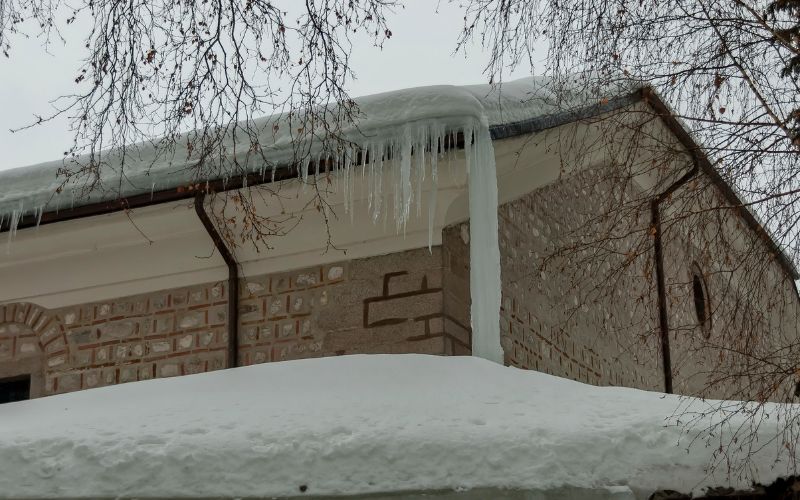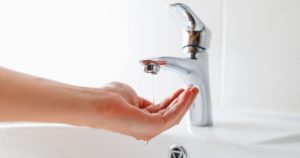With winter approaching, it’s crucial for Clifton, NJ residents to recognize the risks and consequences of frozen or burst pipes. According to CostHelper, the average cost to repair a busted water pipe is $900, not including additional water damage repairs.
Our team at BJC Clifton Plumbers Services is here to provide you with essential information to tackle this common problem, ensure safeguards against frozen pipes, and understand why frozen water expands.
How Do Pipes Freeze and What Happens?
Frozen water expands when it freezes, causing pipes to break due to increased pressure. The most vulnerable pipes in your NJ home are typically uninsulated and located along exterior walls, attics, basements, crawl spaces, and kitchen cabinets. For more information on preventing this issue, check out our article on how to prevent frozen pipes in winter.
Outdoor water lines, such as those connecting hoses, sprinkler systems, irrigation systems, or swimming pools, are also susceptible if not drained before winter.
What Are the Risks of Frozen Pipes?
The older your water pipes, the more likely they are to be damaged by freezing water. Many modern homes have complex plumbing systems, so a single burst pipe can lead to catastrophic damage. A single burst pipe can release up to eight gallons of water every minute, potentially resulting in thousands of dollars in damage in less than an hour. This could render your home or business unusable for weeks.
Prevention Tips to Avoid Frozen Pipes
You can significantly reduce the likelihood of frozen or burst pipes by taking a few basic precautions before winter. Consider the following tips:
- Unplug and Drain Outdoor Hoses: Turn off the water supply to outdoor hoses and leave the outdoor valve open to allow any residual water to drain. Insulating spigots can also help.
- Insulate Vulnerable Pipes: Wrap any exposed water lines at risk of freezing with insulation.
- Insulate Your Hot Water Tank: This can prevent freezing in cold conditions.
- Know Your Main Water Shutoff: Familiarize yourself with your home’s main water cutoff valve and how to use it.
- Keep Garage Doors Closed: If your water lines run through your garage, keep the doors closed on cold days.
- Open Kitchen and Bathroom Cabinets: This allows warm air to circulate around the pipes, especially on chilly days.
- Let Faucets Drip: Allow a trickle of room-temperature water to flow from the taps during particularly cold nights.
- Maintain a Warm Temperature: Set your thermostat to no lower than 55 degrees.
- Drain the Water System When Away: If you’ll be out of town for an extended period, turn off the water supply and run all fixtures until the water stops flowing.
Warning Signs of Frozen Pipes
Even with precautions, frozen pipes can still occur. Here are some warning signs to watch for:
- Reduced or Stopped Water Flow: If you notice a significant drop in water flow at a fixture, you may have a frozen pipe.
- Moist Areas on Walls or Ceilings: These may indicate a leak from a frozen pipe.
If you suspect a pipe has frozen, keep the faucet open. As the frozen section begins to melt, water will flow again, aiding in the thawing process. You can wrap hot water-soaked cloths around the pipes or use a heating pad, hair dryer, or space heater to warm the area. Always exercise caution when using electrical equipment near water.
What to Do After a Pipe Bursts

If you experience a burst pipe, act quickly to minimize damage:
- Turn Off Your Water Supply: Locate and turn off your home’s water supply valve.
- Turn Off Electrical Appliances: If any appliances are near the water flow, turn them off and move belongings out of the way.
- Contain the Water: Use buckets to catch and collect as much water as possible.
- Drain Remaining Water: Use your kitchen and bathroom faucets to drain any remaining water in your plumbing system.
- Document Damage: Take photos and notes of the damage before contacting your insurance company.
- Call a Professional: Once you’ve managed the immediate crisis, contact an expert to repair your pipes.
Frequently Asked Questions
How Can I Tell if My Pipes Are Frozen?
If water flow is reduced or stopped, it may indicate a frozen pipe. Look for moist areas on walls or ceilings as additional warning signs.
What Temperature Do Pipes Freeze?
Pipes can freeze when the temperature drops below 32°F (0°C), but other factors like wind chill can also contribute.
How Can I Insulate My Pipes?
Use foam pipe insulation sleeves or wraps available at hardware stores. Focus on pipes located in unheated areas of your home.
Call Us for All Your Plumbing Needs
If you experience frozen pipes or other plumbing issues, contact BJC Clifton Plumbers Services in Clifton, NJ, for assistance. Call (973) 858-5005 or submit an online service request.
For more tips on winter preparation, check out our 10 furnace maintenance tips to keep you warm all winter.




